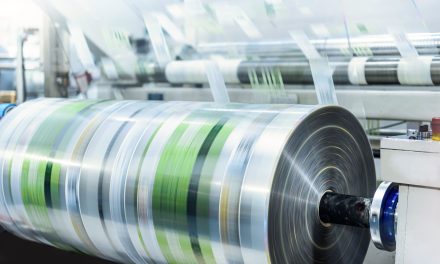Smooth and efficient operations are imperative in production and manufacturing, crucial in all industries — including the food and beverage industry. Given we consume food and drink, it’s imperative that harmless lubrication is used to avoid toxic effects from traditional greases and oils. Worryingly, there are still numerous companies that haven’t made the essential switch from traditional greases to food grade grease.

For companies that produce food and drink, the safety of customers is of paramount importance. High standards of sanitation and hygiene must be followed across the whole process of production from start to finish. The use of lubricants is essential for machinery in the manufacturing process to help minimise friction and general wear and tear — grinders, motors, ovens, mixers, conveyors, labelling and packaging machines. But with it come challenges.
Avoiding Cross-contamination
Non-toxic lubrication hasn’t been viewed with high importance in Hazard Analysis Critical Control Point’s (HACCP) risk assessment, however recently the focus around lubrication has risen. Arguably due to people’s growing awareness around a healthy diet and becoming more aware of what we’re putting into our bodies, the need for controlling cross-contamination in the food industry is being pushed. Although complex machinery involved in today’s manufacturing side is designed for lubrication to have zero to little contact with food products, this cannot be guaranteed in every day’s operations.
Back in 2002, it was reported that 86,000 pounds of sliced turkey accidentally came into contact with a non-food grade lubricant, causing customers to complain of intestinal discomfort from contaminated turkey. Another company was investigated after receiving complaints of a jar of baby food smelling of tar, revealing toxic mineral oil had contaminated the food. Not only putting customers at risk, this could seriously damage a manufacturer’s reputation, consumer trust, and profits.
Eradicating Allergens
A main obstacle for food manufacturers to overcome is to ensure they have eradicated the risk of allergens. Fortunately, food grade lubrications ensure careful ingredient traceability and control under ISO 21469, therefore meaning that suppliers can confirm the absence or presence of common allergenic ingredients as well as being produced in hygienic conditions. Not using food grade lubrication cannot guarantee what potential substances food may or may not have come in contact with, putting customers’ health and safety at risk.
Products that contain triphenyl phosphate are known to trigger allergic reactions, as well as numerous health effects in laboratory animals. Shockingly, triphenyl phosphate is a chemical that is also used as a plasticiser as well as a fire retardant — how does the consumption of this sound opposed to something derived from vegetable oils?
Reducing Illnesses
Certain microbes have been known to cause people to become ill, such as viruses, flu, bacteria — fortunately many food grade lubricants available today include special additives that prevent the growth of microbes. This is particularly important in machinery exposed to moisture and steam and is difficult to keep clean at all times.
With health and safety becoming a major topic in the current age, it’s becoming increasingly important to ensure the correct lubrication is used so not to harm anyone.
For more information, contact Klueber Lubrication.
Sources
https://www.manufacturing.net/home/article/13183173/food-safety-the-legends-of-food-grade-lubricants


